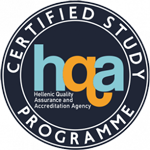This course focuses on the methods and tools that a business can use for the effective management of one of its most important resources: knowledge. The effective management of this knowledge using specific techniques and tools can help a business to secure and maintain a competitive advantage. The object of this course is to understand and apply the management practices and concepts, as well as the technologies and tools, that enable the effective acquisition, processing and use of knowledge resources in the constantly changing environment in which businesses operate.
The course examines issues relating to strategic knowledge management, application of knowledge management and mining methods, techniques, and tools, and also new technologies and applications, for example, big data, business intelligence and cloud computing. Technological and non-technological factors of knowledge management systems implementation will be analysed in order to define the common approaches, best practices and standardization initiatives and describe and place these in the wider business content.
The general purpose of the course is to provide important and useful guidelines regarding the way in which businesses can be technologically, culturally, and socially aligned in order to take advantage of the opportunities for using knowledge both within their business and beyond the boundaries of their business. Moreover, the technologies, tools and best practices that can be implemented in all types of business will be identified, to ensure that these businesses can help to combine essential components of knowledge and fully exploit it as a whole.
The use of current literature, examples, applications, and case studies will help students to understand academic concepts and develop skills in the following areas:
- basic concepts, theories, best business practices, tools and technological knowledge management systems;
- issues relating to strategic knowledge management and the application of relevant methodologies, techniques and tools;
- methods, technologies and tools that can be used for knowledge mining; and
- new technologies, tools and applications, for example, big data, business intelligence and cloud computing, and how these can be implemented for more effective knowledge mining and management.




